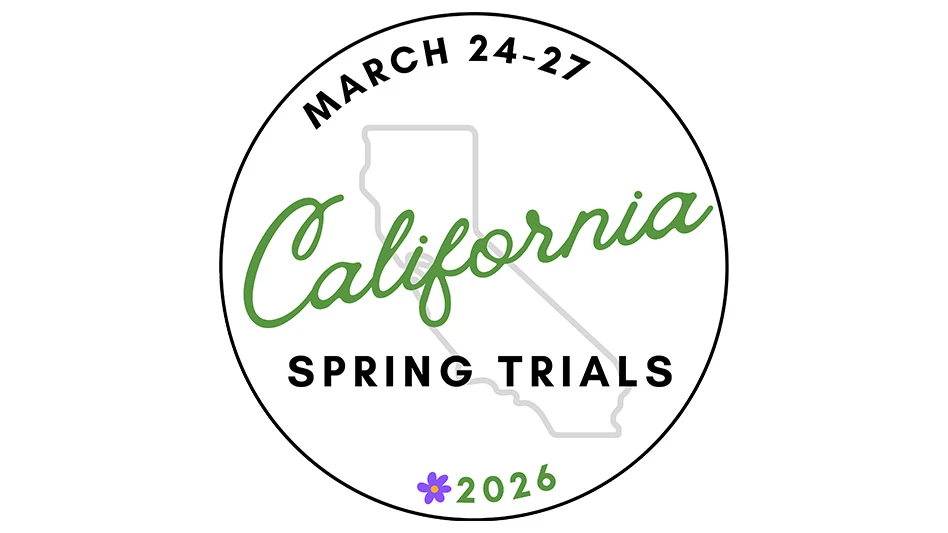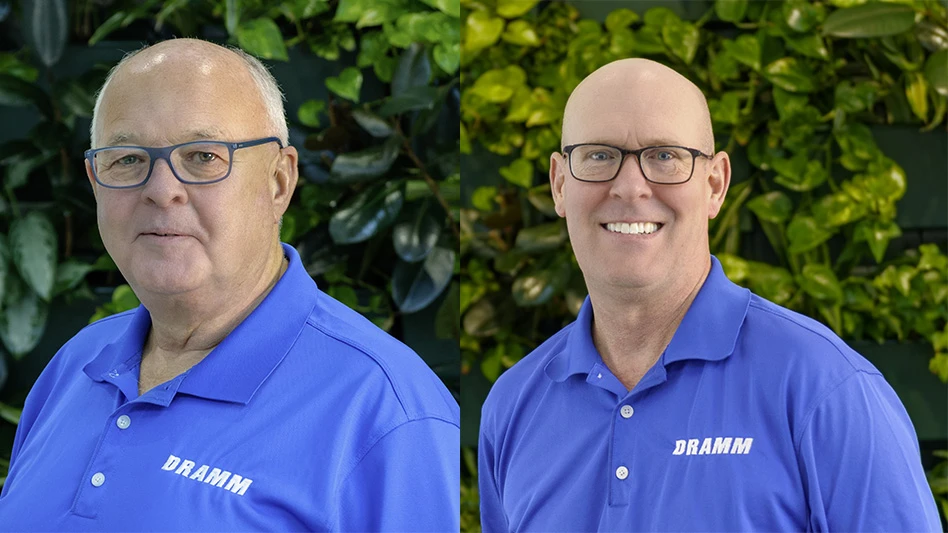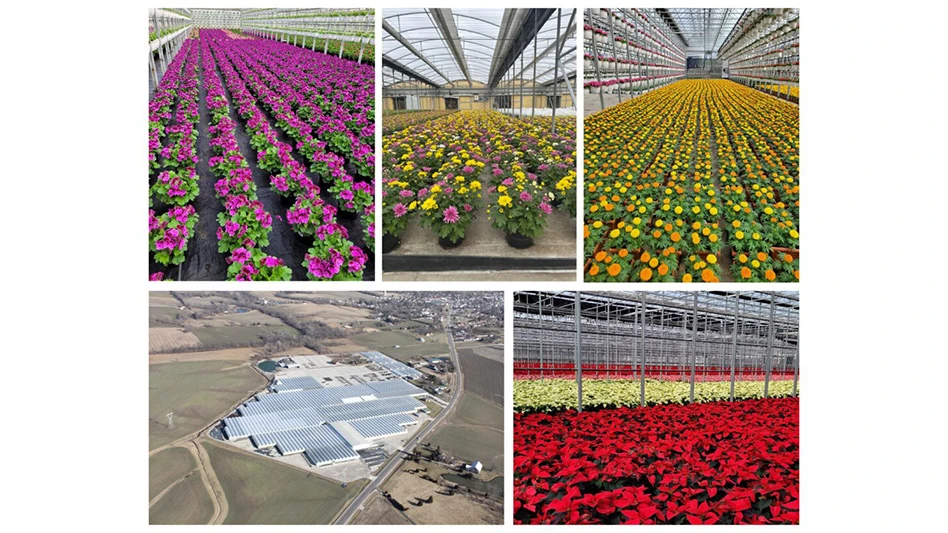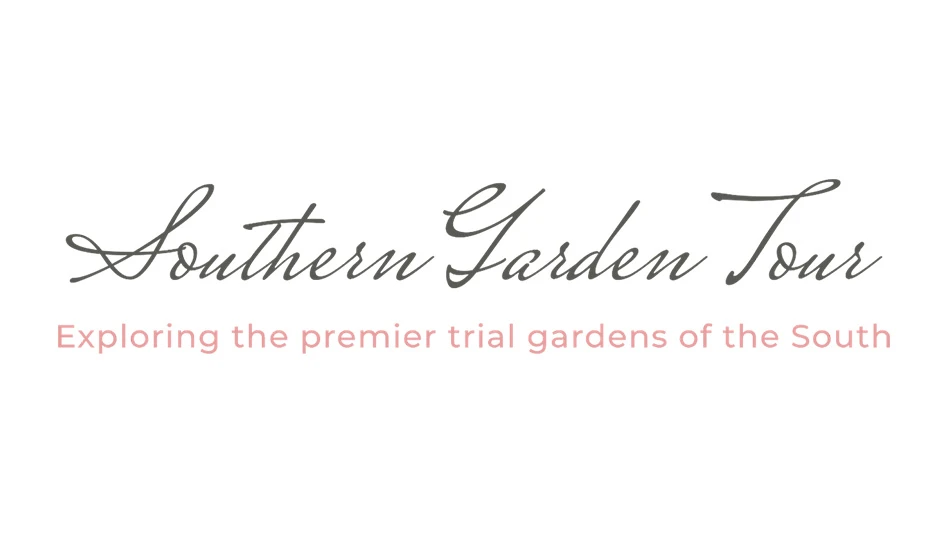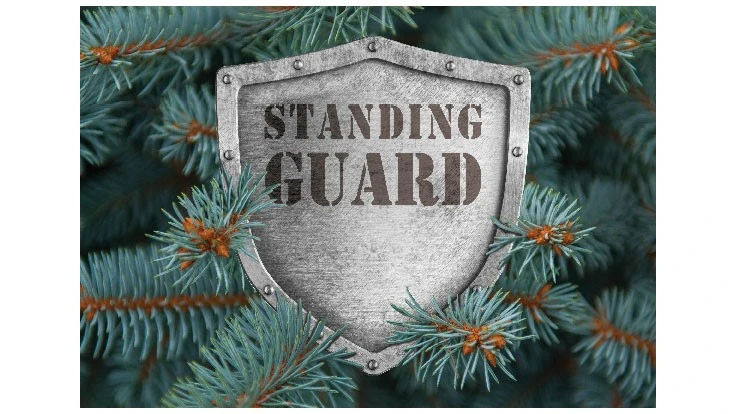


Plant pest and quarantine regulations present a constant challenge for the horticulture supply chain. And when things go wrong, it means headaches, liability and financial losses that can be devastating, not to mention a black mark on your company’s good name.
By offering a way for retailers, growers, regulatory agencies and end consumers to avoid those problems, Plant Sentry is poised to change the way plant products are shipped.
“We were worried that retail outlets and online businesses were going to spread pests, diseases
Plant Sentry is a software-as-a-service (SaaS) program pioneered by Nature Hills Nursery. This software makes it possible to meet the stringent growing, inspection and audit requirements for plants in every state—protecting against plant diseases, plant pests, invasive plants and other threats to plant health and environmental safety.
The Omaha, Neb., nursery was founded in
The right side of the law
“When shipping live plants, the United States is not a single nation—it’s a collection of 50 independent states,” Dinslage says. “Each state has its own set of rules and regulations that prevent diseased plants, pest-infested plants
This is a tough enough challenge for nurseries,
Some nurseries are adding voluntary audit-based programs, like the Systems Approach for Nursery Certification, to provide proof that their plants meet the highest standards of quality and are produced in a pest-and-disease-free environment. SANC was developed under the guidance of the National Plant Board, AmericanHort, the USDA/APHIS
Tom Buechel is the president of Buechel Horticulture Solutions, LLC, and serves as compliance officer for Nature Hills Nursery. He’s also a SANC veteran, having implemented the certification procedures two years ago at McKay Nursery in Wisconsin.
Editor’s note: Learn how McKay became SANC-certified and how it’s changed the business in our October 2016 cover story. http://bit.ly/McKaySANC
SANC played an integral part in the development of Plant Sentry. Buechel sees Plant Sentry as the evolution of SANC, a way to spread the risk management best practices from the grower to the other stakeholders in the supply chain.
“The SANC model helped us develop a standard for e-commerce plants that aims to minimize, reduce, and eliminate the risk of shipping insect, disease or invasive species problems by identifying and enforcing state restrictions on the front end,” Buechel says. “Plant Sentry is the next step in creating a responsible industry solution that holds all parties to the highest level of awareness and accountability.”
The company has a goal of SANC-certified growers providing plants for Nature Hills. Currently, there are two SANC-certified nurseries using the program.
“Plant Sentry allows the grower to focus on what they do best—produce healthy plants,” Buechel says. “The Plant Sentry system will also back its growers so that no grower will be left behind to blame. The result is the education and support that nurseries need to grow healthy plants—and eventually to achieve SANC certification status.”
Plant Sentry is poised to change the way plant products are shipped across the U.S.”
How it works
The ever-changing nature of live plant regulations makes it nearly impossible for companies, whether large or small, to ship only approved and compliant plants—especially when there is a different set of rules for every state.
There are three parts to Plant Sentry’s system approach to compliance. First is the regularly-maintained national compliance database. State and Federal laws are continually examined for plants that cannot be sold in each specific state, and updates are entered into the database. Grower agreements between Plant Sentry and each nursery ensure that all rules and regulations are being followed at all times.
Second is the shipment certification. Plant Sentry’s proprietary e-commerce software prevents the shipment of any restricted plant to a state in which it’s restricted. Each online order is automatically reviewed by the Plant Sentry rules engine to remove restricted plants from any order, based on the customer’s zip code. This guarantees that only compliant plants are shipped.
Buechel says millions of plants are projected to be shipped via online for years to come many by companies that have little to no experience with plants and do not understand that pests, diseases
Plant Sentry pits grower compliance against inventory that would be supplied to the 50 (currently active in lower 48) states. At the time of
Buechel says the system defaults to a conservative view, preferring to err on the side of blocking any questionable plants to eliminate the possibility of a pest or disease outbreak.
“When in doubt, sit them out,” he says.
In the meantime, if a grower wants to ship that plant, it needs to jump through the right hoops to earn compliance. If a plant is blocked, in some cases there may be a pathway to still ship it. If so, the software generates a suggested compliance list of pest and diseases for the grower to take to their state or federal official. From there, growers will need to work with their state or the USDA/APHIS to obtain the right agreements to ship plants across state lines.

Reducing risk
Dave Cox is the general manager of L.E. Cooke Co., a Visalia, Calif., nursery that closed its
“I wouldn't have done it without having some sort of mechanism like this in place because it put me at risk as a shipper,” he says. “This gives me a level of confidence that I'm not putting something someplace it should not be.”
Cox is no stranger to the regulatory world. He lobbied for his own nursery, as well as others at the state and federal level, for 20-plus years. He’s a member of the California Department of Food and Agriculture’s Nursery Advisory Board that advises the Secretary of Agriculture on industry issues. He’s also on the National Plant Board’s SANC pilot program committee. Typically, a grower would have to canvas the National Plant Board’s website to check each state’s set of regulations, find out the requirements and try to meet them. But with different rules across 50 different states, written in different formats in documents ranging from three to 30 pages, there are plenty of ways to make a mistake.
“That’s a lot you’ve got to wade through to get all this information, and Plant Sentry has consolidated it all so I don’t
Cox believes that type of service is going to be necessary going forward as compliance requirements become more complicated. Other grower partners who have been trialing the system for Nature Hills agree.
Josh Zielinski of Alpha Nursery began using Plant Sentry when his family’s growing operation began doing business with Nature Hills as a supplier. The Salem, Ore., wholesale nursery sells trees and shrubs to licensed retail, re-wholesale
“We have been shipping across the country for a long time but found some small holes in our compliance efforts, and Plant Sentry helped us see them and fill them,” Zielinski says. “A few products can now be shipped to markets we thought were off limits because we didn’t understand the compliance requirements.”
With most nursery operations feeling the squeeze for labor, assigning an employee to monitor regulatory changes just isn’t feasible.
“As a small to
Protecting the future
From the beginning, Nature Hills saw the potential for Plant Sentry to work universally throughout the green industry supply chain. The next step is making Plant Sentry available to other companies. Currently, the Plant Sentry team is fine-tuning compliance variables, refining its technology and incorporating feedback from growers like Cox, who are participating in the software’s trial phase.
Nature Hills plans to add users to the program for additional testing, including a couple of e-commerce sites in California. That testing will be ongoing throughout the Spring of 2019.
A date for a complete roll-out has not been determined.
As a SaaS application, Plant Sentry pricing will be based on a monthly subscription fee and a per/transaction charge for each programmatic call to the source compliance data. The pricing model will be flexible based on company size and
A project of this magnitude takes a lot of time and work. Cox has been impressed with the proactive role Buechel and Nature Hills has taken to keep up with all the regulatory changes and help their clients avoid problems.
“I would imagine it's expensive to set up and maintain, but I think it's worth it in the end because their reputation will be intact long after some of these other guys are dead and gone, in my opinion,” he says. “And frankly that's what should be done. Everything should go through a proper channel. The e-commerce business is the last frontier in that. It's evolving very rapidly and you've got to get a handle on the regulatory
Stakeholders all along the supply chain can benefit. No grower or retailer wants the fines and image issues associated with spreading a disease, pest or plant to a state where it’s considered invasive.
“It's better to start off right, which Nature Hills is
For more: www.naturehills.com; www.plantsentry.com

Explore the December 2018 Issue
Check out more from this issue and find your next story to read.
Latest from Nursery Management
- GIE Media Horticulture Group wins five regional 2025 Azbee Awards of Excellence
- Get to know Pat Reilly with NewGen Boxwood and the American Boxwood Society
- Terra Nova Nurseries introduces rust-free and disease-resistant heucherella
- John T. Nickel, founder of Greenleaf Nursery Co., passes away at 89
- Three tours offered at 2025 Farwest Show
- Garden Media Group announces sixth annual Women in Horticulture Week
- Star Roses and Plants announces National Knock Out Rose Day
- The Growth Industry Episode 4: How federal budget cuts are affecting horticulture nonprofits

